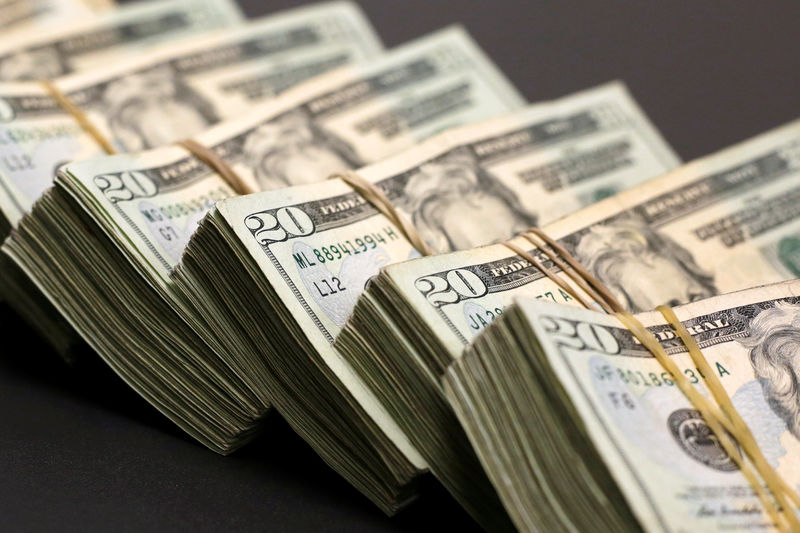By Hideyuki Sano
TOKYO (Reuters) - The yen slipped on Tuesday after comments from the Bank of Japan chief quelled speculation the central bank follow other central banks in scaling back monetary stimulus, while the dollar recovered losses after the U.S. government's shutdown ended.
The yen weakened to 111.15 yen to the dollar
That helped the Japanese currency reverse its earlier gains to 110.55 per dollar, which put it within sight of last week's four-month low of 110.19, after the BOJ maintained its policy and its economic and price projections.
The comments came after U.S. senators struck a deal to lift a three-day government shutdown, which helped the dollar recover earlier losses. However, the greenback remained mired near a three-year low against a basket of currencies on lingering concerns about its yield advantage being chipped away.
The BOJ said risks to prices are still tilted to the downside, though its slight change to its assessment on inflation expectations to "flat" from "weak" was enough to trigger a bout of yen buying.
"I don't see anything in today's announcement that suggests a change in the BOJ's stance. Rather today's price action talks more about how the market is preoccupied with the idea that the BOJ will adjust its monetary policy at some stage in the future," said Minori Uchida, chief FX analyst at the Bank of Tokyo-Mitsubishi UFJ.
The yen has gained after the BOJ trimmed its buying of long-dated government bonds earlier this month, sparking speculation of an eventual exit from its large stimulus.
The dollar's index against a basket of major currencies (DXY) (=USD) stood at 90.49, not far off its three-year low of 90.104 touched on Jan. 17.
The U.S. House of Representatives passed a short-term measure on Monday to fund the federal government through Feb. 8 after it won enough support in the Senate.
Still, a boost from the deal did not last long partly because the measure secured funding for only a little more than two weeks, with the Republicans and Democrats still at loggerheads on many issues.
One reason often cited by traders for the dollar's climbdown is that its relative yield attraction is at risk as the world's major central banks are seen winding up their stimulus.
That would change the interest rate dynamics of the past few years, when the U.S. Federal Reserve was the only central bank raising rates.
The euro
Expectations that the European Central Bank may withdraw its stimulus gained momentum earlier this month after the accounts of its last policy meeting showed it could shift its policy communication early this year.
But sources have told Reuters the ECB is unlikely to ditch a pledge to keep buying bonds at its upcoming meeting on Thursday.
The British pound

French President Emmanuel Macron said on Saturday Britain would be able to have a bespoke deal with the European Union after Brexit, one of Prime Minister Theresa May's objectives.